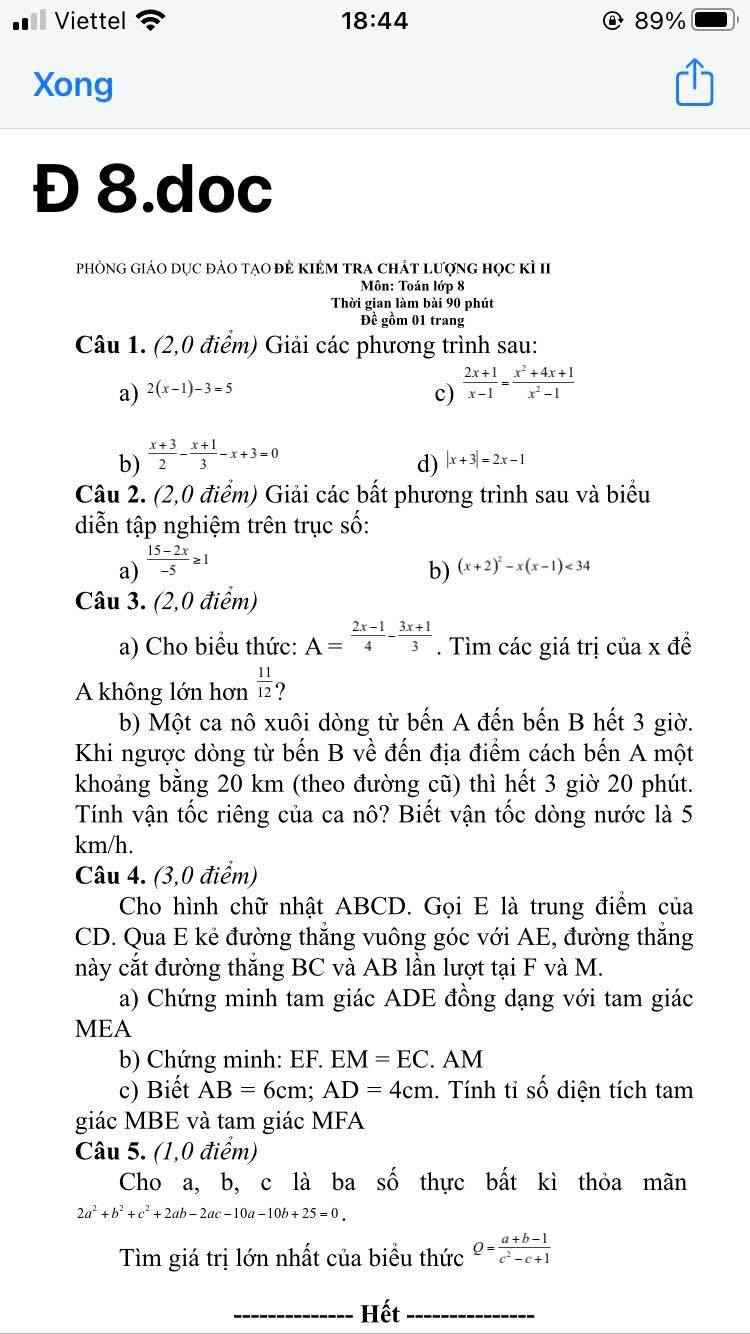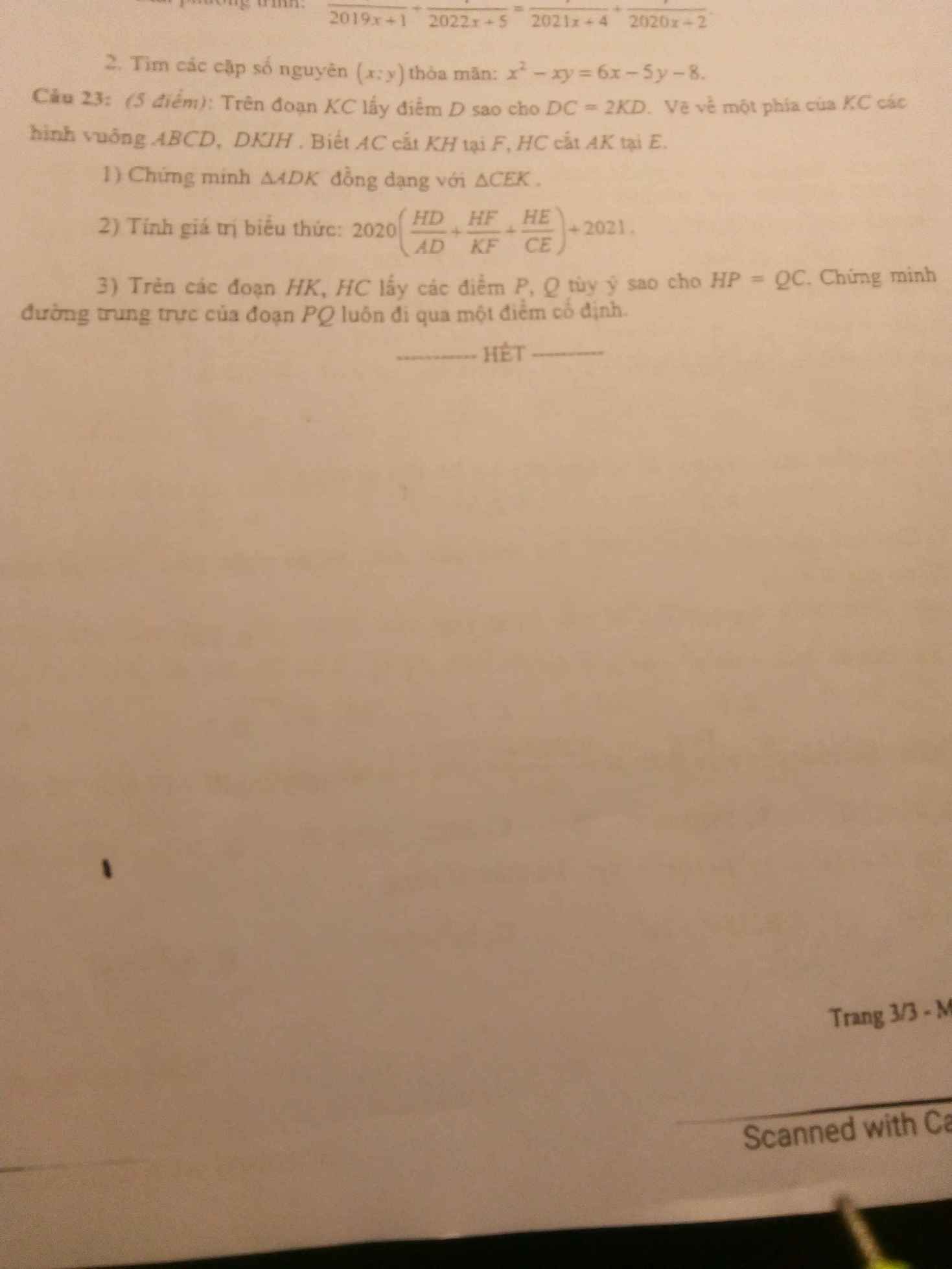Câu 1:
a) Ta có: 2(x-1)-3=5
\(\Leftrightarrow2\left(x-1\right)=8\)
\(\Leftrightarrow x-1=4\)
hay x=5
Vậy: S={5}
b) Ta có: \(\dfrac{x+3}{2}-\dfrac{x+1}{3}-x+3=0\)
\(\Leftrightarrow\dfrac{3\left(x+3\right)}{6}-\dfrac{2\left(x+1\right)}{6}-\dfrac{6x}{6}+\dfrac{18}{6}=0\)
\(\Leftrightarrow3x+9-2x-2-6x+18=0\)
\(\Leftrightarrow-5x+25=0\)
\(\Leftrightarrow-5x=-25\)
hay x=5
Vậy: S={5}
c) ĐKXĐ: \(x\notin\left\{1;-1\right\}\)
Ta có: \(\dfrac{2x+1}{x-1}=\dfrac{x^2+4x+1}{x^2-1}\)
\(\Leftrightarrow\dfrac{\left(2x+1\right)\left(x+1\right)}{\left(x-1\right)\left(x+1\right)}=\dfrac{x^2+4x+1}{\left(x-1\right)\left(x+1\right)}\)
Suy ra: \(2x^2+3x+1-x^2-4x-1=0\)
\(\Leftrightarrow x^2-x=0\)
\(\Leftrightarrow x\left(x-1\right)=0\)
\(\Leftrightarrow\left[{}\begin{matrix}x=0\left(nhận\right)\\x=1\left(loại\right)\end{matrix}\right.\)
Vậy: S={0}
d) Ta có: \(\left|x+3\right|=2x-1\)
\(\Leftrightarrow\left[{}\begin{matrix}x+3=2x-1\left(x\ge-3\right)\\-x-3=2x-1\left(x< 3\right)\end{matrix}\right.\Leftrightarrow\left[{}\begin{matrix}x-2x=-1-3\\-x-2x=-1+3\end{matrix}\right.\)
\(\Leftrightarrow\left[{}\begin{matrix}-x=-4\\-3x=2\end{matrix}\right.\Leftrightarrow\left[{}\begin{matrix}x=4\left(nhận\right)\\x=\dfrac{-2}{3}\left(nhận\right)\end{matrix}\right.\)
Vậy: \(S=\left\{4;-\dfrac{2}{3}\right\}\)




